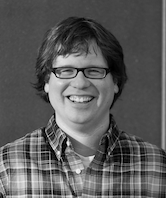The kickoff meeting took place online only. Keynotes were open for the wider public, however registration was still mandatory.
Both keynotes (Monday and Tuesday 4 and 5 May) was at 14:45-16:00 Central Europe Summer Time, calculate your local time here: http://www.worldtimebuddy.com
Monday 4 May 14:45-16:00 (CEST): Keynote by Matthew S. Weber, Associate Professor in the Hubbard School of Journalism and Mass Communication at the University of Minnesota. Title: Web archives as a critical method for the future of digital research.

Title: Web archives as a critical method for the future of digital research
Abstract: Web archiving is often viewed as a passive activity for researchers. The normative workflow sees researchers turning to libraries and repositories for access on an as needed basis and then delving deep into the world of analysis. There is a lot that can be learned from this type of scholarship, and yet the idea of web archives is increasingly a misnomer in that you do not need to be looking backwards or focusing solely on past events. This talk focuses on the ways in which web archives are being utilized to develop new streams of research, including the use of web archives as an observatory for studying modern social phenomena. I will focus on a number of specific use cases highlighting the implementation of web archives to study local news media and modern political campaigns, and will conclude by discussing new workflows and processes for using web archives in digital humanities and social science research.
Tuesday 5 May 14:45-16:00 (CEST): Keynote by Ian Milligan, Associate Professor, Department of History at University of Waterloo. Title: You shouldn’t need to be a web historian to use web archives: Lowering barriers to access through community and infrastructure.

Title: You shouldn’t need to be a web historian to use web archives: Lowering barriers to access through community and infrastructure.
Abstract: If a researcher currently wants to use web archives at scale, they need to be a significant focus of their research activity --- in other words, a web historian really can't just dabble with these sources. Yet historians need to be able to draw on wide varieties of sources for their projects (from archival records to newspaper records to oral histories and beyond). In this talk, I explore how we are developing tools to lower these barriers so that a historian really could use web history data without a significant investment of time. I'll begin by discussing the current situation of working with web archives, and then highlight the Archives Unleashed project, datathons, and other ways in which cultural organizations are making web archives accessible.
We welcome three kinds of participants:
Free seats: A limited number of free seats is available for participants who are not a member of the network. If you want to apply for a free seat it is mandatory to submit a very brief application text (max. 5 lines) that states how participation in the network will be of help to you and how you can contribute to the network. When allocating free seats we will prioritise early career scholars and scholars who cannot get expenses covered by their institution.
Keynote presentations: 80 seats are available, and they are allocated on a first come, first served basis.
Deadline for registration:
The programme for the kickoff meeting is now ready. Click here to read the full programme.
You can find more information about your stay in Aarhus here.
If you have any question regarding your stay or registration, please do not hesitate to contact us: